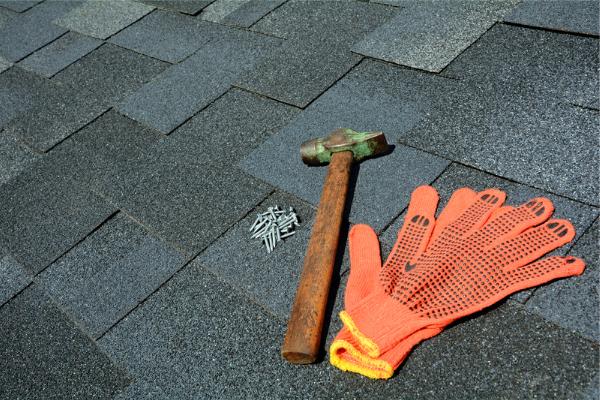Let’s say one too many storms has caused a major leak in your roof and you need a replacement. When you go over the contract with the roofer, something’s not right, but you can’t put your finger on what. The contract finishes halfway down the page and doesn’t really describe how the shingles will be installed or what materials will be used.
A roofer’s high-quality work is nothing without a comprehensive contract. Renovations are often expensive, so you should make sure you have no doubts about what you’re buying.
In this blog, we’ll share why contracts are so important as well as what should be included in a roofing contract, how long it’s good for and what to do before signing.
What’s So Important About a Contract?
Roofing contracts are exceedingly important because they’re roofers’ only tethers to responsibility. If it’s not in the contract, roofers don’t have to do it. Experienced roofers might write up contracts in more detail, but generally, all are fairly straightforward enough for homeowners to understand.
A roofing contract makes sure homeowners get what they pay for and contractors have legal protection against any claims homeowners might want to make. Homeowners know what they’re purchasing, and roofers know what they’re liable for.
The contractor can rest easy knowing that the homeowner understands all warranties with which to protect the home against future damage.
Above all, with a contract, homeowners have peace of mind knowing they can trust the roofer to do a good job. If a roofer writes a comprehensive contract, the homeowner can trust the company, make the investment and understand exactly what work the roofer will complete.
How Long Should a Contract Be?
Contracts are as long as they have to be. We suggest no maximum because there’s no such thing as too much of being on the same page with customers. The closer the communication and the more detail the contract includes, the better the experience for everyone involved.
All that said, many contracts are no more than three or four pages. In terms of format, most begin with an initial overview, then they break the process down into specific steps. Finally, contracts specify any adjustments to make in response to the discovery of further damage. More minute aspects a contract covers might include where to put materials, what needs special attention and what days during the week are best to complete work.
Shady contractors might try to get away with a skimpy contract. It’s really a matter of what they don’t mention. A one-size-fits-all contract that’s no more than a page long is likely a red flag.
What Makes a Good Contract?
A good contract starts with general details about the business: license numbers, insurance information and office addresses. These pieces of information assure homeowners the legitimacy of the roofer.
The contract should also include identifying information about the homeowner, including the address, email address and phone number. Finally, a roofing contract should indicate the address of the work if it differs from the homeowner’s address.
Some roofers may include more peripheral items alongside identifying information, like where to place materials or what deserves special caution and attention.
Roofing contractors should also achieve all of the following:
- Prove they’re insured by indicating worker’s compensation insurance, bonding or liability.
- Prove their compliance with local codes.
- Have all associated permits.
Roofers may have experience wrangling with public adjusters from insurance companies, but they’re not lawyers. Attorneys make changes to contracts all the time, so a good roofer will always have a lawyer review contracts before they reach clients.
The bottom line is that “handshake” deals are just not worth it. A “handshake” isn’t worth $10,000. The agreement must be in writing. Refusing to create contracts is among the biggest business mistakes a roofing contractor can make. A contract should create an environment where everybody wins, contractor or client.
Detailing the Job
After confirming these logistics, a contract must address what the roofer will be doing as well as the labor and materials necessary for the renovation. Every individual part to be used in the renovation must be included in the labor outline.
The contractors should mention specific items by name and provide information about each manufacturer. Lastly, if a contract fails to mention anything about cleanup or disposal services, be sure to go over those logistics with the renovators.
This part of the contract benefits the most from extra details. Often, customers will think something is included or excluded when it isn’t. They feel they have a great deal until the contractor doesn’t complete something they want, or they resent a price tag because of how minor they think the renovation is.
The more details, the better. A contract should mention brand names, colors and anything else customers might find relevant.

Roofs, especially metal ones, come in a variety of colors.
Project Duration
Expressing the duration of the project is another important aspect of a contract. There should at least be an estimate. Work often begins anywhere from two to six weeks after the roofer establishes the contract.
Once the renovation starts, nothing should interrupt it apart from inclement weather. Generally, roofers work during regular business hours until the renovation is complete.
As much as installation time may vary, most asphalt roofs take about a week for a team of renovators to install. After all, each shingle needs individual attention. Some jurisdictions may require a no-later-than clause to make sure renovators get work done on time, but most renovators should be able to give conservative estimates.

Nailing shingles to a roof is a delicate, dangerous process.
Describing Warranties
In a contract, warranties need to describe more than their own longevity. Not only must there be information about how long a warranty applies, but to what that warranty applies.
A contract must be crystal-clear about limited warranties that cover materials only in the event of a defect. In fact, contractors may have homeowners sign a second document to signify that they understand the limitations of warranties.
Installation Method
Next, the contract should describe how renovators will install materials. Many shingles require only four nails for appropriate installation, but homeowners may want six-nail installations for greater wind resistance. Every contract should outline key differences like these regarding installation.
Price and Payments
A contract should offer homeowners some kind of payment schedule. No homeowner should have to pay the entire cost upfront. A single payment in the schedule should never exceed ¾ of the total cost of the renovation.
Especially for large properties, three payments often occur as follows: one upon scheduling the renovation, one upon the arrival of materials at the home and a final one upon completion.
A lot of the time, residential properties call for no more than paying half in the beginning and paying for the other half upon completion. For some jobs, four or more payments might even make sense.
After outlining a plan for payment, a good contract will address how these prices may change upon discovery of further damage.
Planning for the Worst
In addition to warning about changes in price, roofing contracts should estimate the need for further labor or materials. As contractors complete work, they may encounter unprecedented rotting that’ll require many more materials and many more hours to fix.
Again, such requirements will inevitably escalate price, so a contract should at least mention that further problems require further payment.
Contract Termination
Finally, a contract must cover terms of termination. These include a notice, any outstanding payments and information about which deposits are refundable. If a homeowner wants to cancel past a specific date, he or she may still have to pay for materials the renovator has already procured.
How Is a Proposal Different from a Contract?
Note the difference between proposals and contracts, as this illustrates the very importance of a contract. Whereas a proposal is a marketing document that describes all the wonderful things homeowners will get out of their renovation, a contract legally binds renovators to their work for a certain price.
To renovators themselves, there’s little difference between contracts and proposals. Both detail meticulously the work to complete. It just so happens that the contract is a promise that the work will be as good as a contractor says.
Many renovators don’t make separate proposals because contracts essentially include proposals. Going out of the way to write a proposal would be redundant.
A Company That Knows How to Write Contracts
Ultimately, each of these facets is negotiable between homeowners and renovators. Neither party can change building codes, but everything else is fair game. When a homeowner pays out-of-pocket, the price is always negotiable. Unless an insurance company covers the cost, it doesn’t get more complicated than that.
If you’re looking to negotiate with an experienced roofer in the interest of great work on your Chicagoland home, Renowned Building Solutions takes pride in its consistently transparent, crystal-clear contracts. To get started with your renovation, please call 844-736-6961, email us or fill a form on our site.



